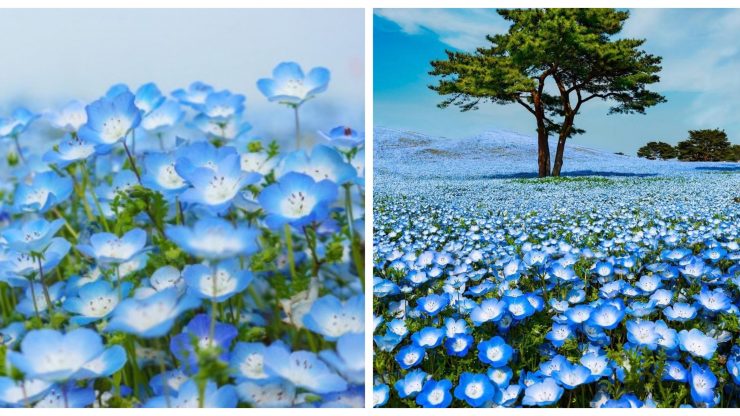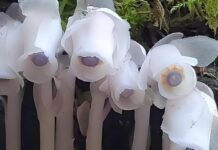When flowers bloom in Japan, they do so seriously, beautifully and in abundance.
An important part of Japanese culture, each season’s unique species and varieties seem to just burst with pride to show their blooms and bring happiness to the people. Large flower fields are found all over Japan, some private farmer-owned and others government-owned tourist attractions. Both local and international tourists love to travel and enjoy the spectacle each season brings.
A sight not to be missed for those visiting Japan, the Hitachi Seaside Park near Mito in the Ibaraki Prefecture offers many varieties of seasonal flowers and other attractions such as an amusement park and several cycling and walking trails spread over 190 acres.
Those who have experienced the glorious display of Nemophila Harmony in bloom attest to late April to mid-May being one of the best times to visit the park.
Nicknamed the “baby blue eyes,” 8.6 acres of Miharashi hills are covered by 4.5 million Nemophilia flowers. We’re not sure how they counted them all but that’s a serious number of flowers! Except for the pathways, they cover every inch of the hills like an exquisite carpet and no matter at which point of the walkways you find yourself, you’ll have an amazing, picture-perfect view every time.
Considering the current world-wide coronavirus pandemic, the park was closed on April 4 until further notice. So while you won’t be able to visit in Spring 2020, perhaps this video of the Hitachi Seaside Park will brighten your day in the meantime and wet your appetite for a future visit.
You can easily grow your own fields of baby blue eyes (Nemophila Menziesii). This annual is a hardy, low-spreading shrub with succulent stems and is easy to maintain.
The baby blue eyes should do well in USDA hardiness zones 2-10. Although they don’t need fertilizer once they grow, a little added to the soil before planting the seeds will help with growth. Plant the seeds in early spring where they’ll have partial shade and some wind protection.
Give them plenty of water during the first six weeks of germination and then cut down on watering when they bloom.
When your baby blue blooms, you’ll be rewarded with plenty of beautiful flowers whose petals mostly cover the stems and green leaves. Because the Nemophila are not around for long enough, pests and disease are usually not a problem, although if planted in early spring they should bloom through summer and attract butterflies and bees to your garden.






